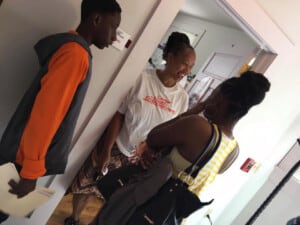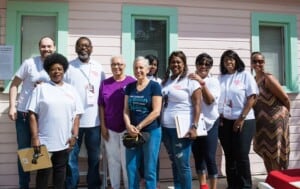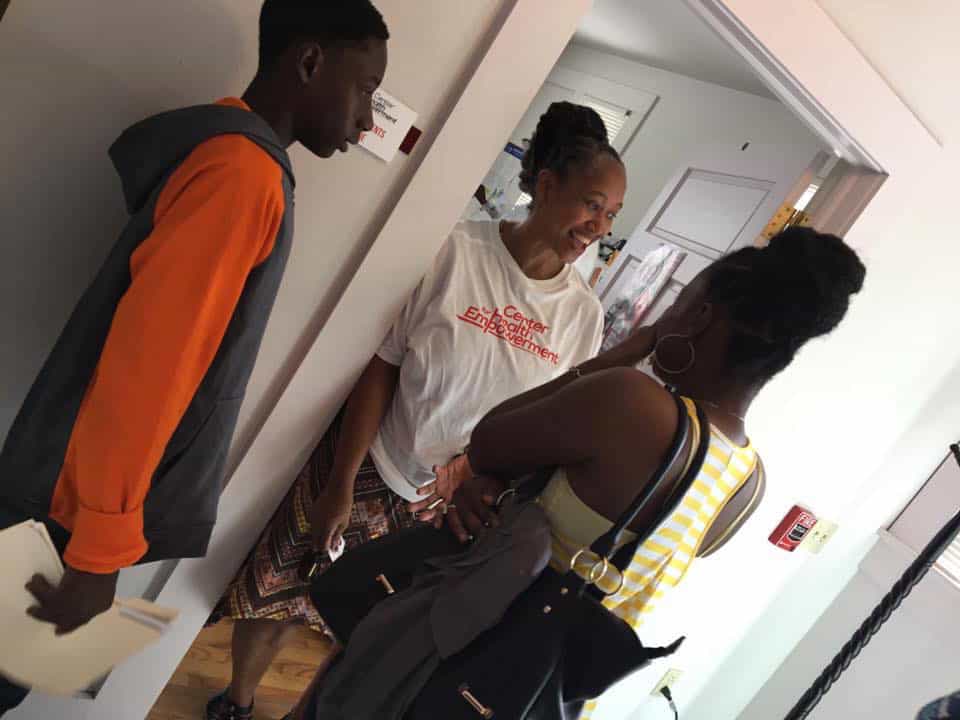Social work professor Michele Rountree believes that an effective way of reducing health disparities is bringing culturally tailored services to people right where they are. That’s why she is a founding member of the Center for Health Empowerment (CHE), a nonprofit that has recently opened in East Austin to improve the sexual health of underserved populations.

“If you look at HIV rates from a health equity lens, you find that unfortunately African American and Latinos have disproportionally higher rates for infection,” Rountree says. “And we know that health is not just the result of individual behavior but it is also determined by the social, political, and cultural contexts in which we live. A big part of that is access to the right tools for us to be healthy.”
The center was created primarily to provide access to an anti-HIV medication — PrEP, or Pre-Exposure Prophylaxis — that is highly effective to prevent infection when taking once daily.
“We provide PrEP to people at no cost,” Rountree explains. “Even though PrEP has been around in the United States for a while, many physicians are not aware of it. And some may have decided that they won’t prescribe it because they are afraid it will elicit sexually risky behaviors. There is still much stigma and misunderstanding around HIV.”
Rountree says that the center approaches the issue without judgment: “We believe that sex should be a normal part of our functioning as human beings, we believe in wellness, and we believe in ensuring that all people have access to the tools that allow them to achieve and sustain wellness.”
The center is located in the Connelly-Yerwood House — known as the “pink house” by many Austinites — a historic building on East 12th street that has a long association with wellness and the African American community.

The house was built in 1904 for the Connelly family, and was sold in 1926 to an African American physician, Charles Yerwood, and his wife Nan. During this time, people of color were moving east of Interstate 35, mostly as a result of racially discriminatory housing policies west of the highway. Daughter Connie Yerwood, who was also a physician, later occupied the house and had it painted the pink and aqua colors of her sorority, Alpha Kappa Alpha, the oldest Greek-letter society established by African American women. Connie Yerwood was a prominent public health advocate, the first black physician on the staff of the Texas Department of Health, the first black director of Maternal and Child Services in Texas, and the first black chief of the Bureau of Personal Health Services.
“The beauty of the pink house is that it is already a marker in East Austin and has a long history of that African American family supporting the needs of the community,” Rountree says. “So when people come to CHE for services they already feel comfortable in terms of the physical environment. We also make sure that there is familiarity in terms of the race, ethnicity and sexual orientation of the staff and volunteers who greet and provide services for them.”
In addition to providing PrEP for free, the center offers free screening and testing of sexually transmitted diseases, and referrals for social services.
“Our goal as a center is to exist where sexual orientation and race and ethnicity are not predictors for HIV positive or the progressive diagnoses of AIDS,” Rountree concludes.
By Andrea Campetella. Posted May 29, 2017. Photos by Center for Health Empowerment.


